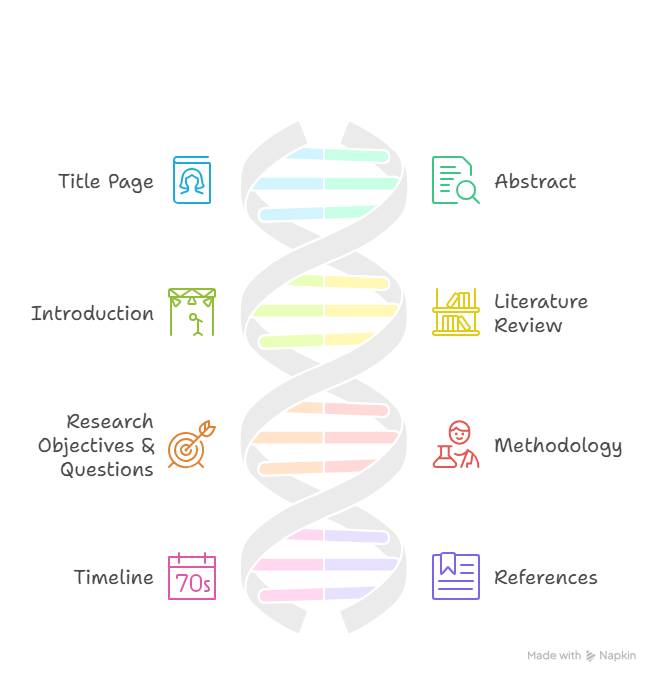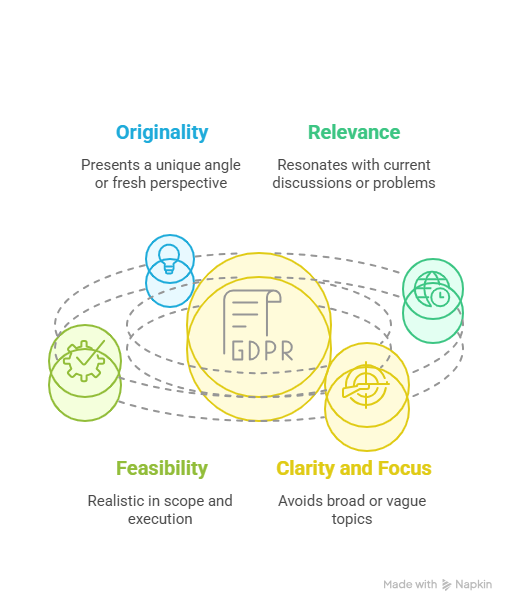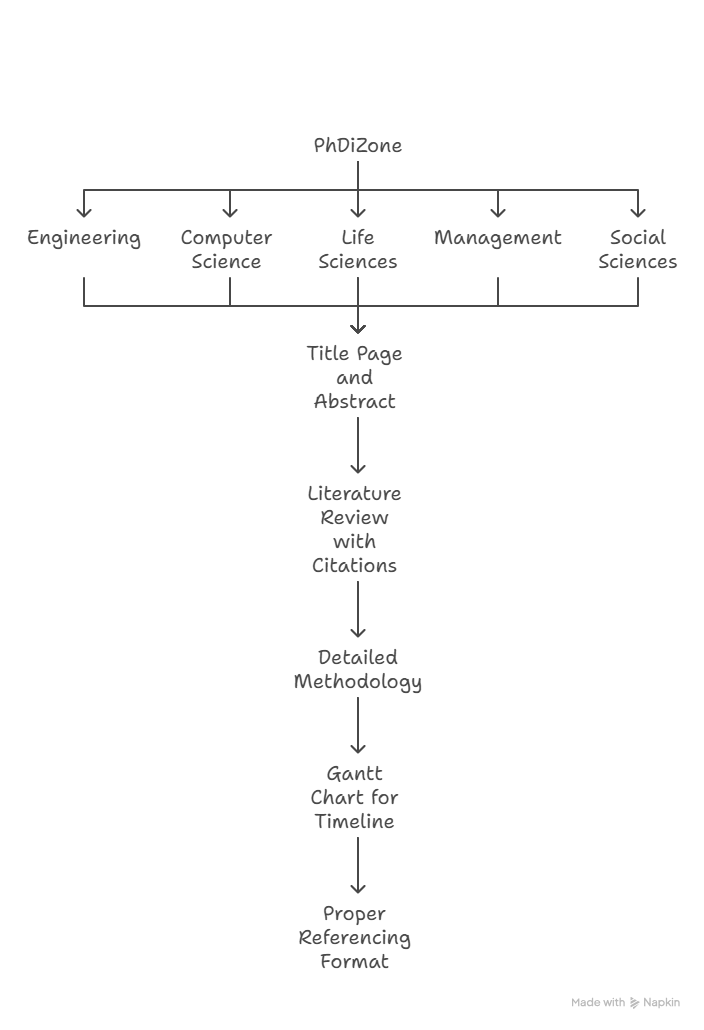Embarking on a PhD journey is a monumental academic pursuit that demands intellectual commitment, originality, and a clear direction. At the heart of this process lies the PhD research proposal, a document that outlines your research intent, objectives, and methodology. This proposal acts as a blueprint for your doctoral studies and is often the first official academic document reviewed by your prospective university or research committee. As such, crafting a compelling and academically rigorous PhD research proposal is critical to securing admission and beginning your research journey.
A well-structured PhD research proposal demonstrates not only your grasp of the subject matter but also your ability to plan and execute independent research. Universities expect students to identify gaps in existing knowledge, propose novel research questions, and outline a methodology that can realistically address these questions. This is where most candidates struggle, often due to a lack of understanding of what constitutes a strong proposal.
At PhDiZone, we specialize in guiding doctoral candidates through the complexities of academic research. Our expert team provides end-to-end support for writing a PhD research proposal that meets institutional standards and impresses academic reviewers. Whether you are stuck at topic selection or struggling to write the methodology section, we are here to help you succeed.
Table of Contents
PhD Research Proposal
A PhD research proposal is merely a very detailed plan for a project of research, stating what you intend to study, why the study is worth being done, and how you go about conducting your research. Essentially, it is your pitch to the academic committee, showcasing your ability to conduct independent, original research that contributes to your field. It typically includes a research question, literature review, research objectives, proposed methodology, timeline, and expected outcomes.
The main goal of a PhD research proposal is to demonstrate to your supervisor or admissions panel that your research concept is both feasible and significant. It should clearly reflect your understanding of the subject and your ability to contribute meaningful insights to the academic field. the chosen area, your understanding of current standpoints and voids in the literature, and your ability to contribute significantly to academic discussion.
Unlike a simple essay or assignment, a PhD research proposal is more formal and strategic. It is not just about what you want to study, but also about why it matters. A strong proposal also outlines how your research fits within the larger academic framework, addressing potential theoretical, practical, or policy implications. This comprehensive approach ensures that your proposal is not only academically sound but also relevant to current research priorities.
A well-written PhD research proposal sets the tone for your entire doctoral journey. It defines your research trajectory and helps establish a clear path forward. At PhDiZone, we help you craft a proposal that reflects both academic excellence and research ambition.
Components of a PhD Research Proposal
To write a compelling PhD research proposal, it’s essential to understand its key components. Each section plays a critical role in outlining your research plan and demonstrating your preparedness. Here are the main components:
- Title Page
This includes your proposed title, your name, institution, and contact details. The title should be concise, descriptive, and indicative of your research scope. - Abstract
A brief summary (150–250 words) that outlines the research problem, objectives, methods, and potential outcomes. It should capture the essence of your proposal. - Introduction
Introduces the research topic, its background, and the rationale behind choosing it. This section should present the research question and explain its significance. - Literature Review
It critically evaluates existing research relevant to your topic. It identifies gaps, debates, and emerging trends, establishing the foundation for your research. - Research Objectives and Questions
Clearly state what you aim to achieve and the specific questions your research will answer. - Methodology
Details the research design, data collection methods, tools, and analysis techniques. Justify your choices and show feasibility. - Timeline
Break down your research project into stages with estimated timeframes. This demonstrates planning and time management. - References
List academic sources cited in your proposal. Use a consistent citation style.
PhDiZone ensures that each component is meticulously written to meet academic expectations. Our experts guide you through every section, helping you create a cohesive and convincing proposal.
How to Choose a Research Topic
Selecting the right research topic is one of the most crucial steps in writing a PhD research proposal. Your topic sets the foundation for your entire doctoral study, influencing the direction, scope, and depth of your research.So, how can you identify the most suitable research topic?
Start by identifying your area of interest. Your PhD journey will span several years, so it’s vital to select a topic you are genuinely passionate about. Next, conduct a preliminary literature review to understand the current state of research in your field. Look for gaps, unanswered questions, or underexplored areas that you can investigate further.
A good PhD research proposal topic should be:
Originality
Your topic must present a unique angle or contribute a fresh perspective to your field of study. This could involve exploring an under-researched area, introducing a new theoretical framework, or applying an established idea to a novel context. An original PhD research proposal captures the interest of review committees by addressing unanswered questions or bridging noticeable gaps in the existing literature.
Relevance
Choose a topic that resonates with current academic discussions or real-world problems. Relevance ensures your research is meaningful and timely, increasing its potential impact. Whether your focus is theoretical, applied, or policy-based, aligning your topic with contemporary issues enhances its value and credibility in the academic community.
Feasibility
A viable topic must be realistic in scope and execution. Assess whether you have access to necessary resources such as datasets, tools, funding, and academic support. Consider ethical requirements and logistical challenges as well. Importantly, your chosen subject should match your knowledge base, skill set, and research capacity.
Clarity and Focus
Avoid topics that are too broad or vague. A focused research topic helps you formulate precise research questions and design an appropriate methodology. Define your scope clearly so that your study remains manageable within the given timeframe and academic framework.
At PhDiZone, we guide researchers through the process of generating, assessing, and fine-tuning their research topics for maximum academic impact. We also perform domain-specific trend analysis and keyword mapping to ensure your topic is both novel and impactful. We use academic databases, journals, and citation tools to validate topic feasibility and academic value.
Best Practices for a Strong PhD Research Proposal
Crafting an impressive PhD research proposal requires attention to detail, clarity, and strategic planning. By focusing on the following best practices, you can significantly enhance the quality and impact of your proposal:
- Be Clear and Specific
Clearly define your research aims, methods, and expected outcomes. Using precise language helps reviewers understand your objectives and the direction of your study. - Choose a Focused Topic
Select a topic that is well-defined and researchable within your scope. A focused research question allows you to explore your subject in depth and demonstrate expertise. - Conduct a Thorough Literature Review
Engage with recent, peer-reviewed literature to highlight gaps, trends, and scholarly debates. This shows your awareness of the field and the relevance of your proposed research. - Design a Realistic Methodology
Align your research design with your objectives. Choose methods that are practical, justified, and capable of producing meaningful results. - Maintain Academic Integrity
Always cite your sources and use your own words to express ideas. Originality and proper referencing reflect your credibility and scholarly ethics. - Follow Institutional Guidelines
Adhere to the specific formatting and structural requirements of your target university or funding body. A well-organized proposal reflects professionalism and diligence.
At PhDiZone, we empower scholars to apply these best practices through expert guidance, detailed reviews, and academic mentoring. Our team ensures your proposal is not only error-free but also academically compelling and institution-ready.
Expert Tips for Writing a PhD Research Proposal
Creating a PhD research proposal goes beyond simply stating information—it requires clear communication, persuasive writing, and strong academic depth. The following expert strategies will help you develop a proposal that stands out.
Start Early
Begin the process well in advance to allow sufficient time for brainstorming, researching, outlining, drafting, and multiple rounds of revision. A rushed PhD research proposal often lacks clarity and depth, whereas a well-planned one demonstrates thorough preparation and commitment.
Understand the Requirements
Before you start writing, carefully review your university’s specific guidelines. Be sure you understand the expected structure, required word count, citation format, and any submission protocols. Adhering to these standards shows professionalism and attention to detail—qualities that strengthen your proposal.
Be Concise and Focused
Avoid overly technical language or filler content. Keep your writing clear and direct. Clearly define your research goals and explain the methodology you’ll use to achieve them. A concise PhD research proposal ensures that reviewers grasp your ideas quickly and easily.
Show Originality
Demonstrate how your research idea fills a gap in the existing body of knowledge or introduces a novel approach. Highlighting your proposal’s unique value adds weight to its academic contribution and showcases your critical thinking.
Use Visual Aids
Complex research designs or data frameworks can be communicated more effectively with visuals. Tables, graphs, charts, or conceptual diagrams help illustrate your ideas clearly and enhance the overall readability of your proposal.
Proofread Thoroughly
Errors in grammar, spelling, or formatting can undermine the quality of your work. Use proofreading tools or seek professional editing to ensure your proposal is polished and academically appropriate.
Seek Feedback
Before submitting, ask peers, faculty mentors, or academic consultants to review your proposal. Constructive feedback can help you refine your arguments, correct weaknesses, and strengthen your final submission.
At PhDiZone, we provide one-on-one coaching, expert reviews, and proposal writing services tailored to various disciplines. Our guidance helps you avoid common mistakes and refine your proposal into a document worthy of approval.
Following these tips not only enhances your proposal’s quality but also builds your confidence in defending your research idea.
Sample PhD Research Proposal
Seeing a real example can provide clarity and guidance. A well-written sample PhD research proposal helps you understand how to structure your own, what tone to use, and how to articulate your research objectives effectively.
At PhDiZone, we offer downloadable samples across various domains including:
- Engineering
- Computer Science
- Life Sciences
- Management
- Social Sciences
Our sample proposals include:
- Title page and abstract
- Literature review with citations
- Detailed methodology
- Gantt chart for timeline
- Proper referencing format
These samples are written by experienced academic writers and reviewed by subject matter experts. They adhere to university guidelines and showcase the depth, clarity, and originality required for successful PhD research proposals.
Using a sample as a reference can significantly reduce the learning curve. However, it is important to avoid copying directly from samples. Instead, use them to model structure and academic tone.
How PhDiZone Can Help You
PhDiZone is a leading academic research support provider specializing in phd proposal writing, journal publication, data analysis, and more. We understand the unique challenges faced by research scholars and provide customized services to address them effectively.
Here’s how PhDiZone supports your PhD research proposal:
Proposal Writing
Our experienced academic writers craft detailed and structured PhD research proposals tailored to your university’s specific format, evaluation criteria, and subject requirements. We ensure clarity, cohesion, and academic rigor in every section.
Editing & Proofreading
Even the strongest ideas need to be presented clearly. Our professional editors refine your proposal for grammar accuracy, logical flow, academic tone, and formatting compliance, enhancing its readability and professionalism.
Plagiarism Check
Originality is non-negotiable in doctoral research. We use advanced plagiarism detection tools to guarantee 100% original content, and we provide detailed reports to support academic transparency and integrity.
Expert Review
Before final submission, your proposal is reviewed by subject matter experts who assess the content for research depth, methodology accuracy, and overall academic quality. Their insights ensure your proposal meets the highest scholarly standards.
PhDiZone’s team includes experienced academicians, subject matter experts, and publication consultants. We support you from concept to completion, ensuring a smooth and successful research journey.
Whether you are just beginning or stuck midway, PhDiZone is your academic partner in producing a compelling and institution-approved PhD research proposal.
FAQs About PhD Research Proposals
1. What is a PhD research proposal, and why is it important?
A PhD research proposal is a structured document that outlines your proposed study, including the research topic, goals, approach, and relevance. It plays a crucial role in securing admission, as it demonstrates your preparedness and ensures your research aligns with academic standards and expectations.
2. What is the ideal length of a PhD research proposal?
Most institutions recommend between 1,500 to 3,000 words, though this may vary based on guidelines. Always follow your university’s specific requirements.
3. Can PhDiZone help with selecting a research topic?
Absolutely. We offer topic selection services based on academic trends, relevance, feasibility, and your area of interest, ensuring your topic stands out.
4. How long does it take to write a PhD research proposal?
On average, it takes 2 to 4 weeks depending on the complexity of the subject, availability of research materials, and depth of analysis required.
5. What are the key sections of a PhD research proposal?
A strong proposal includes: Title, Abstract, Introduction, Literature Review, Objectives, Methodology, Timeline, and References. We help structure each section to meet academic standards.
6. Does PhDiZone provide plagiarism-free proposals?
Yes. All our proposals are 100% original and come with detailed plagiarism reports from trusted tools like Turnitin or Grammarly.
7. Can I include multiple research questions in my proposal?
Yes, but they should be closely related and manageable within the scope of your research. We can help you refine and align them to ensure feasibility.
9. Will PhDiZone customize the proposal based on university guidelines?
Definitely. We tailor every proposal based on your university’s format, template, and specific faculty requirements.
10. Should a research timeline be part of the PhD proposal?
Yes. A realistic timeline (often in Gantt chart format) demonstrates your planning ability and time management—both essential for PhD approval.
11. Can PhDiZone guarantee proposal acceptance?
While we guarantee high-quality and guideline-compliant work, final acceptance depends on your university’s review process and supervisor feedback.
Conclusion
Crafting a PhD research proposal is a foundational step in your academic journey. It requires in-depth investigation, analytical reasoning, and clear articulation of ideas. A well-prepared proposal not only secures admission but also sets the tone for your doctoral success.
By understanding the components, choosing the right topic, avoiding common mistakes, and following expert tips, you significantly improve your chances of approval. Support from a trusted partner like PhDiZone can make the process more efficient, accurate, and less stressful.
At PhDiZone, we are committed to helping scholars like you turn their research dreams into reality. Whether you’re at the ideation stage or ready to finalize your proposal, our team is here to assist you every step of the way.
Build a solid foundation for your academic journey by beginning with a professionally written PhD research proposal – PhDiZone.











